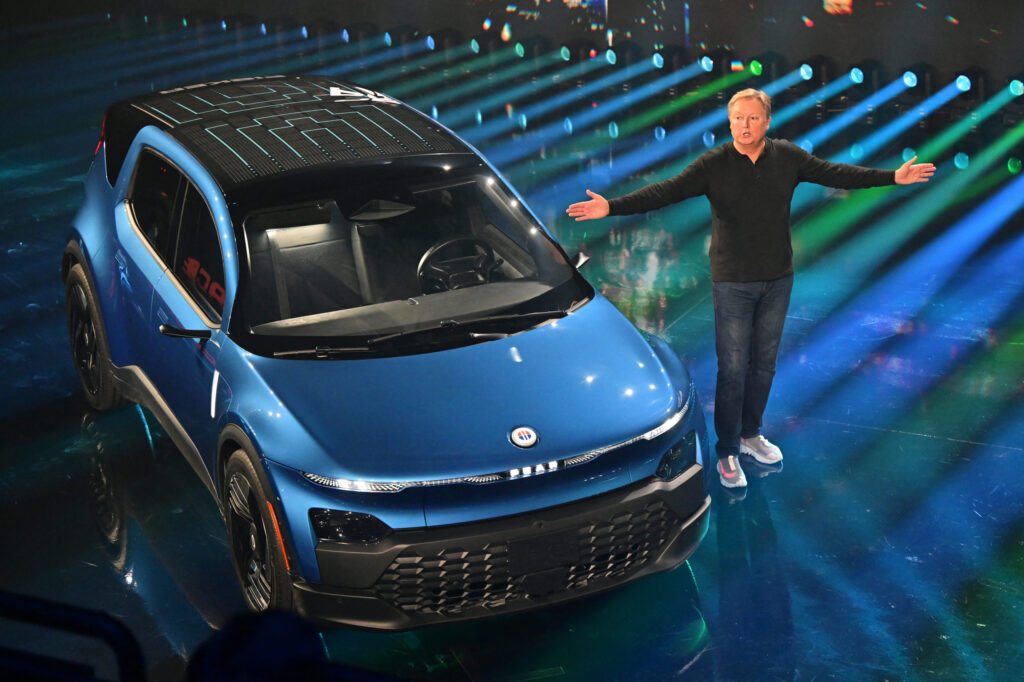A struggling electric vehicle (EV) manufacturer is temporarily suspending production as it appears to be preparing for a potential bankruptcy.
Fisker Automotive announced Monday that it is pausing production for six weeks “to align inventory levels and progress strategic and financing initiatives.” The company hired advisers last week to help prepare for a potential bankruptcy, according to The Wall Street Journal.
The company warned in February that it is at risk of running out of money this year and that there was “substantial doubt” as to whether it would be able to survive, according to the WSJ. Fisker also reported in February that it conducted $273 million in sales while holding about $1 billion in debt. (RELATED: Electric Vehicle Start-Ups Are Running Out Of Juice)
Fisker CEO Henrik Fisker introduces the all-electric compact hatchback Pear during its inaugural “Product Vision Day” in Huntington Beach, California, on August 3, 2023. (Photo by Frederic J. Brown/AFP via Getty Images)
The company also announced Monday that it had arranged $150 million in financing through a transaction with an investor.
Fisker filed for bankruptcy in 2013 despite benefitting from a $192 million loan guarantee from the Obama administration, and a Chinese manufacturing group purchased the firm in 2014. The company’s EVs range in price from about $30,000 to as high as $385,000, according to its website.
The company was once a darling in the eyes of investors and EV enthusiasts, but logistical problems associated with building up capacity to mass-manufacture vehicles and slower growth in EV demand have hampered the company, according to the WSJ. The company’s stock is down by about 90% year-to-date, now trading for about 15 cents per share, according to data made available by Google Finance.
As of March 15, Fisker had manufactured 1,000 EVs and delivered about 1,300 vehicles in 2024, the company said in its production pause announcement. At the end of 2023, the company had 5,000 unsold EVs on its hands, according to the WSJ.
While Fisker’s problems may be more acute than those troubling other EV manufacturers, the industry as a whole is struggling despite aggressive regulation and spending by the Biden administration to promote EVs. The administration is aiming to have EVs constitute 50% of all new vehicle sales in the U.S. by 2030.
Major manufacturers like Ford are losing billions on their EV product lines, while the nation’s charging infrastructure remains highly concentrated in more densely populated regions. Some of the Biden administration’s signature subsidy programs designed to build out a national EV charger network have also been slow to catch on.
Fisker Automotive did not respond immediately to a request for comment.
All content created by the Daily Caller News Foundation, an independent and nonpartisan newswire service, is available without charge to any legitimate news publisher that can provide a large audience. All republished articles must include our logo, our reporter’s byline and their DCNF affiliation. For any questions about our guidelines or partnering with us, please contact licensing@dailycallernewsfoundation.org.


